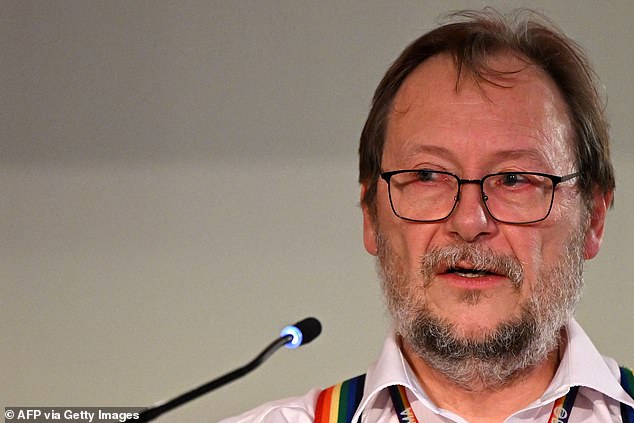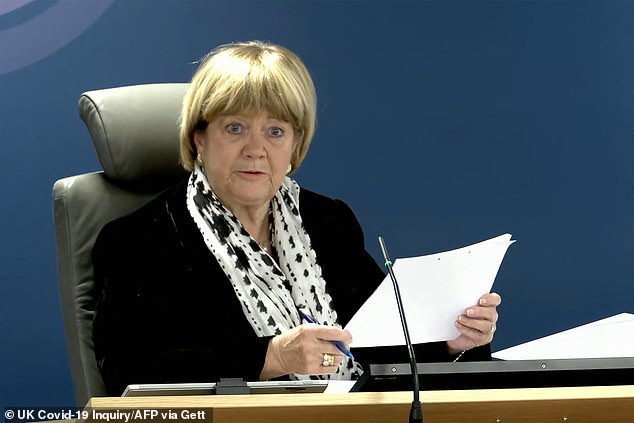The scathing report by the inquiry into the UK’s Covid-19 pandemic preparedness published today has revealed the “true horror” of how unprepared the nation was, medical leaders said.
COVID Inquiry Chair Baroness Heather Hallett today presented her first report into the Government’s response to the pandemic, examining how, or whether, the nation was prepared for such an emergency.
Its scathing report concluded that ministers and the government had failed to prepare the UK for an “entirely foreseeable” pandemic, making the human economic cost worse than it might have been.
At least 235,000 Britons are believed to have died from the virus since the pandemic began, with other deaths due to disruption to the NHS and regular screening for health problems such as cancer.
Families, communities and businesses were also shattered by a series of crippling lockdowns that ministers imposed in an attempt to curb the spread of Covid.
Responding to the inquiry’s report, Prime Minister Sir Keir Starmer said: ‘Today’s report confirms what many have always believed: that the UK was unprepared for Covid-19 and that the process, planning and policies across all four nations failed the people of the UK.

The head of doctors’ union the British Medical Association, Professor Philip Banfield, said: “This report reveals in all its true horror how woefully unprepared governments were for the pandemic, that processes failed us as citizens and that lives could have been saved.”
Responding to the inquiry’s report, Prime Minister Sir Keir Starmer said: ‘Today’s report confirms what many have always believed: that the UK was unprepared for Covid-19 and that the process, planning and policies across all four nations failed the people of the UK.
“The country’s security must always be the first priority, and this Government is committed to learning the lessons of the investigation and implementing better measures to protect and prepare for the impact of any future pandemic.”
The head of doctors’ union the British Medical Association, Professor Philip Banfield, said: “This report reveals in all its true horror how woefully unprepared governments were for the pandemic, that processes failed us as citizens and that lives could have been saved.”
We knew that when the pandemic began, our healthcare services were already struggling to cope and were ‘overheated’ due to years of neglect and underinvestment by the Conservative Government.
“This report highlights how, time and again, ministers were told that we simply did not have enough staff or resources to cope with the expected huge increase in demand for healthcare that a pandemic would bring. It shows how often governments ignored key findings.”
Professor Banfield highlighted how 13 of the 14 pandemic simulation exercises conducted up to 2018 identified a lack of adequate staff and PPE in the NHS for a massive surge in patients.
PPE supplies were a critical issue in the early stages of the pandemic, with reports of NHS staff having to buy their own and parts of the system, such as social care, having to go without.
Echoing Baroness Hallett’s warnings that it was a question of “when” rather than “if” another pandemic strikes, Professor Banfield added that the UK was not prepared for such an emergency.
“The BMA believes the UK is still ill-equipped, understaffed and unprepared to manage a future pandemic when it arrives,” it said.
“Today’s report makes clear the urgency of improving the UK’s preparedness. This is a monumental and wide-ranging task for the new Government, which, as Baroness Hallett specifically states, will need significant funding.”
‘Baroness Hallet’s report says the UK government, devolved administrations and civil services have “failed their citizens”. This cannot be allowed to happen again. There are several more reports to be published by this inquiry, but change must start now.’
The head of the medical union, the Hospital Consultants and Specialists Association, Dr Naru Narayanan, added: “This lays bare the dereliction of duty at the top in the years leading up to the worst global health emergency in modern times.”

Baroness Heather Hallett, who chaired the COVID-19 inquiry, highlighted the severe lack of preparedness and resilience that saw the virus ravage communities and overwhelm the NHS.
He continued: ‘Complacency in Government left us totally unprepared in the complete absence of any serious planning for a Covid-style pandemic.
‘The false economics of underfunding NHS services left them in the worst possible position in the run-up to 2020.
‘Our hospital’s member physicians, their colleagues, patients and the general public were all victims of this incompetent lack of contingency planning and were effectively left to their own devices when the pandemic hit.’
Dr Narayanan said the inquiry’s recommendations must be “implemented in full and without delay” and added that “those responsible must be held accountable”.
A spokesperson for the Covid-19 Bereaved Families for Justice UK group, speaking outside the inquiry, welcomed the report and its recommendations.
However, they added that they felt the investigation had not gone far enough.
‘While the inquiry has diagnosed much of what undermined our response, Lady Hallett has not gone far enough to set out how we can challenge, address and improve the inequalities and capacity of public services, rather than simply understand the effects of these failures.
‘We call on this government to develop a plan to address health inequalities and to conduct a cross-departmental audit of pandemic preparedness within its first 100 days.
“We are also calling for the government to appoint a minister for resilience and preparedness. We need someone with ultimate responsibility for responding to an emergency and who we can hold to account.”
This module of the inquiry, which examined pandemic preparations before Covid struck, took place over 23 days of public hearings in central London during June and July last year.
Other modules include examining the decision-making process in the pandemic across the UK, the impact of Covid on British health systems, vaccines, PPE procurement, the care sector, the effect of the pandemic on children and the economy.
The entire inquiry is not expected to conclude its public hearings until 2026 and is estimated to cost around £200m.

